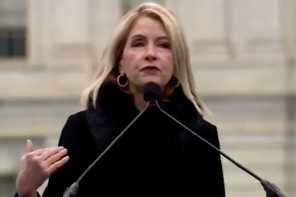Professor Daniel C. Maguire’s latest book, Christianity Without God: Moving beyond the Dogmas and Retrieving the Epic Moral Narrative, is an ambitious project that functions as both a primer on the logical and ethical failures of theism and as a reimaging of the biblical narrative to meet the great moral challenges of our day. As a theologian and former priest who teaches ethics at Marquette University, a Jesuit school, Maguire fills a critical gap in a body of atheist literature that has frequently demonstrated its authors’ limited understanding of religious texts.
Armed with a rigorous academic background in religion and the attendant understanding of the gravity of the God-loss, Maguire’s theological and pastoral training sets him apart from fellow atheists. By recognizing the poetic and ethical value of biblical stories in a more nuanced way than those scholars who offer only perfunctory nods to the Bible’s poetry, Maguire’s book offers a gentler welcome to atheism than its more dismissive predecessors. RD spoke with Maguire by phone about his latest book and the future of belief.
What was the impetus for undertaking this after a long career as a priest and theologian who was once a believer?
I started out as the absolute true believer. I believed everything the Vatican taught. One of the things that helped me was working in a parish. I started to meet real people and to discover that some of the things I had just gotten good grades on were dead wrong.
When you do realize that something is wrong in a system that you thought was airtight, your first impulse is to say, “Well that was the only thing wrong. They were wrong on birth control, but the rest of the structure is fine. God, Jesus, everything else is fine.”
But you’ve been shaken at the foundations and you’re more open to finding more problems in the system. So it was a progressive thing that moved me toward atheism. I finally decided with this book to spell it out in detail.
Do you see this as a political position? I never really identified political belief with real theological commitments.
I think the main passion of the conservative mind is fear and there’s no greater fear than that the universe is without meaning. That chaos is our destiny. So I think the God concept is very consoling.
In the book you call the tendency to personify God, to make God one of us, “an act of despair.” That recognition of human grief and the epilogue on the God-loss read to me as very pastoral.
A theologian who read this book—very theistic—once she read the manuscript, she said, “You have to say something to us who hate giving up God.” And she said, “I love waking up in the morning and seeing the sun shine and the sky blue and the birds in flight and saying, ‘Thank you God,’ and you’re taking that away from me.”
You write “theism promises simplicity and security and delivers neither,” but you do refer to a world that was “not yet ready for atheism.” Do you believe the world is now ready for atheism?
As long as there is fear, it will never be fully ready. Fear makes you reach for a supernatural insurance policy. But yeah, I think so. As I was dealing with Catholics who were slowly liberalizing, the most common thing I would hear after giving a talk is, “I’ve always felt that.” That’s a great word “felt.” It was there. It was nibbling at them. I’m beginning to have that same reaction here about the God question. People are uneasy in their sense of God.
Do you have a response to those who would respond, “I just feel that God exists”?
When I gave my first talk on this book [I said], “I am going to say things that are going to cause you pain. And disappoint you.” Yet at the same time, I have never written to please people, I pursue the truth. I think people appreciate that. The two nuns that were there probably went home and prayed for me, but they also came and had champagne with me. The bond was not broken. That’s a good sign of maturity in the culture.
You have a lot of historical information and theological background in this book that religion students would already know. So was this for a more mainstream audience?
I wrote it because I was annoyed with some writers because I knew they knew better. I said, “There’s bad faith here.” These people are supplying the data but they go along with the lie. But I was also writing it for a number of people having these doubts who needed some data. What I’m saying isn’t brand new, but it’s saying, “Come on folks, let’s be honest about this.”
You lead the moral vision of the book with a challenge to protect the environment. Was that intentional?
I think that it opens people to the things that disturb them theologically. There is a growing sense that the wrecking of the Earth is progressing and we’re past tipping points. That point allows them to forgive my non-theism.
Do you believe there’s a future for the idea (or identification) of being culturally but not theologically Christian?
Definitely. I grew up in a household with four sons and three of us became priests. That’s part of my story and its still part of my thinking. My moral creed for all Christians does not require belief in a god; there’s a whole cultural development that’s very dependent on Judaism and it’s something that I treasure. Many of my sensitivities are still rooted in that tradition.
This is a book called “Christianity Without God” but instead of the Gospels, you use the story of the Exodus to form your great, more moral project.
What attracted me from the Exodus to the New Testament was the conviction that the given is not necessarily permanent. We can transcend it. In the vision of Isaiah there is a new heaven and a new earth, a new possibility, and a new testament. Transform everything in your thinking. Level every mountain, raise every valley. The great heresy of all time is, “There is no alternative.” The hell there isn’t! There are alternatives all over the place. That is what is at the heart of the epic biblical moral narrative.
You call that thinking at one point “the suicide of small expectations.” Do you think we live in a culture that is overly forgiving of our ethical laziness?
Augustine said we have “the seeds of virtue” but it’s very undeveloped and that’s where ethics have to move in. That’s a huge problem. The danger is, that in responding to crisis, we stop working on it and think, “The status quo is the status quo.” And that’s why the species is headed for a short tenure.
Do you think the species is headed for a short tenure? You do leave that sort of ambiguous in the book.
This species has it in it to self-destruct. It also has it in it to make a new earth, to turn things around. The dream is the only thing we have; if these dreams grip us then policies will flow from that. The other thing about the Bible is that it has great hopes. You’re a little less than the angels, then it says you are hopeless and beyond redemption. Parodox is often the mark of truth: we are a downer species that is egotistical and short-sighted. On the other side, we have potential for, to use a funny word, the divine.





